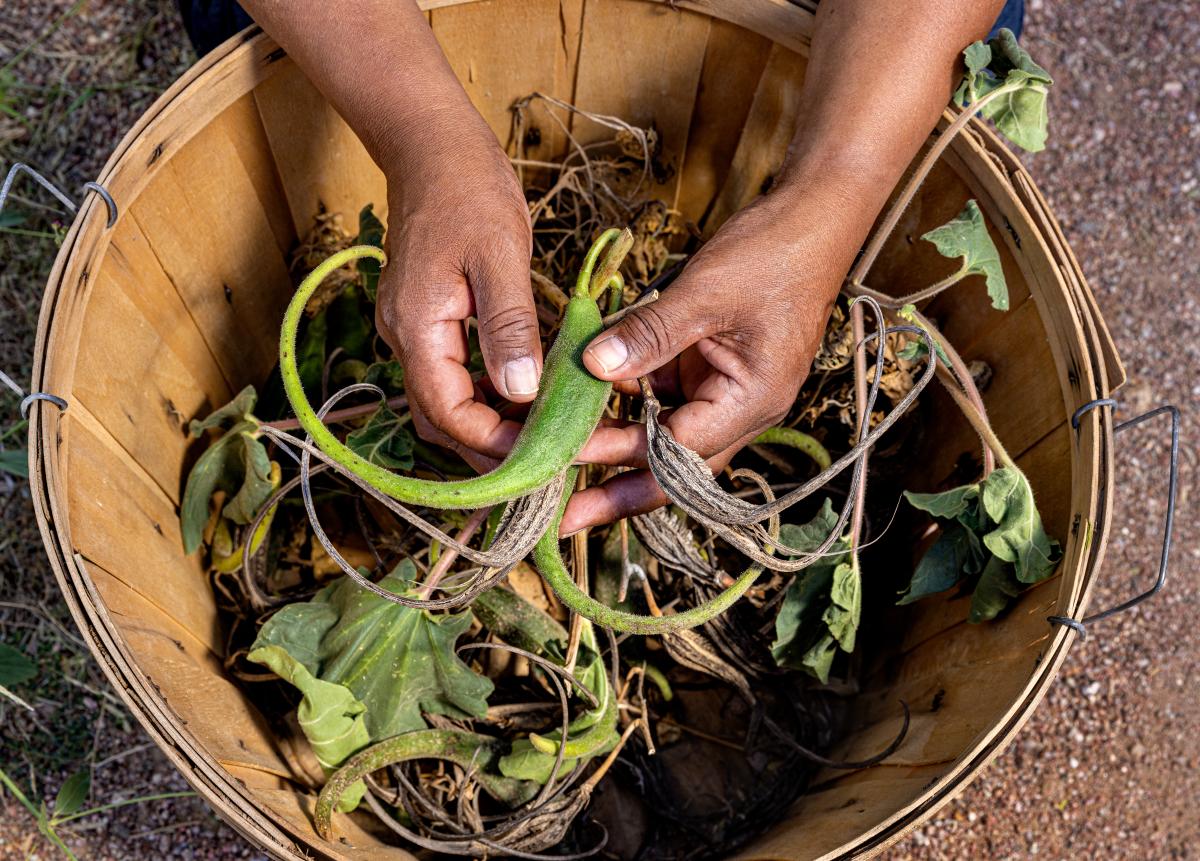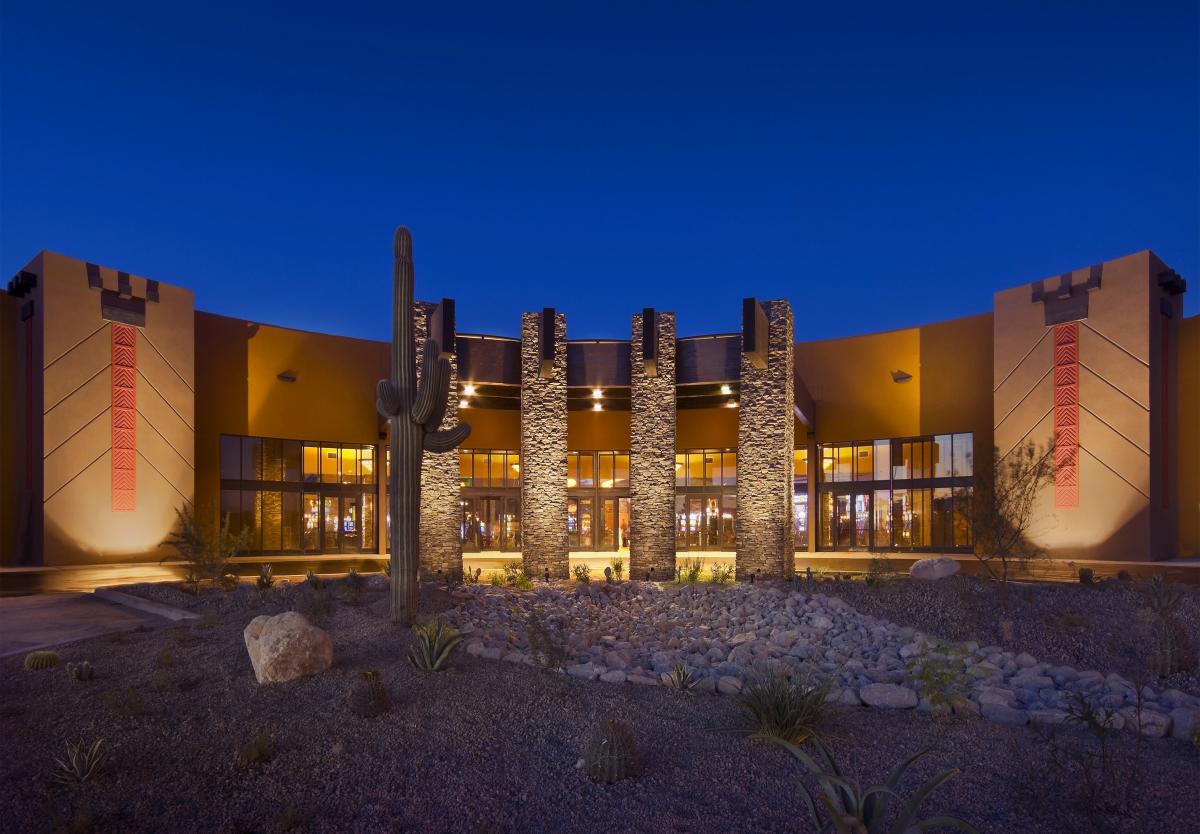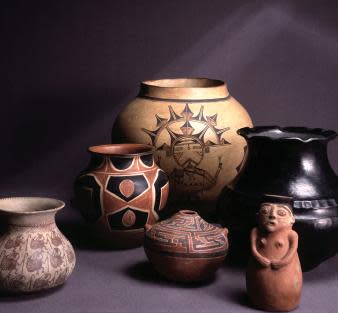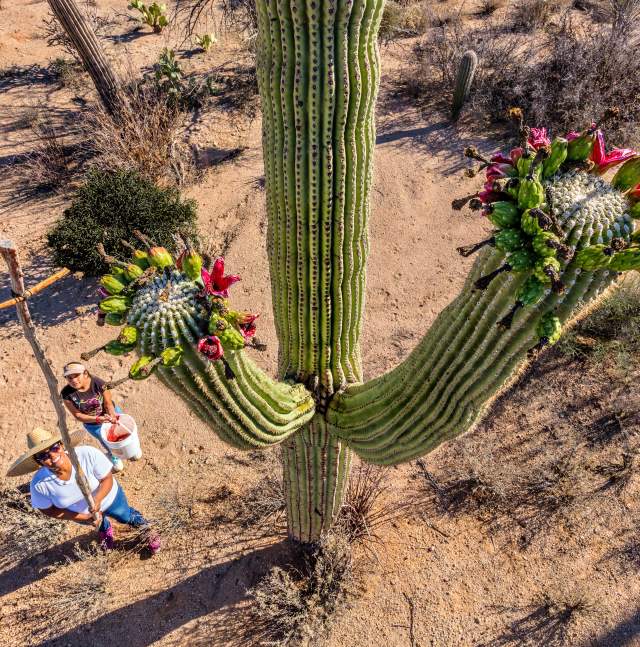Native American Culture
A large part of Tucson’s culture lies within the area's deep-rooted Native American history. Indigenous peoples have played a significant role in shaping the history and culture of Tucson, and continue to have a strong presence in the region today. Tucson received the City of Gastronomy distinction from UNESCO, because the food, especially heritage ingredients, grown and harvested by the Indigenous peoples of our region tells the story of early agriculture that dates back at least 4,000 years.
So, where did it all begin?
Archaeological evidence suggests that Paleo-Indians may have first inhabited the Tucson area some 12,000 years ago. Later, between 300 and 1,500 AD, the Hohokam inhabited this area, making Tucson, the oldest settlement continuously inhabited in North America.
The Tohono Oʼodham, which translates to “desert people,” who inhabit this area today, consider themselves to be direct descendants of the Hohokam and earlier peoples. The Pascua Yaqui Tribe also currently inhabits the Tucson area and are descendants of the Yaqui people from the Rio Yaqui in Sonora, Mexico.
 Devil's Claw in both fresh and dried forms grown in the Indigenous Gardens at Mission Garden
Devil's Claw in both fresh and dried forms grown in the Indigenous Gardens at Mission Garden
How Heritage Foods Connect Past, Present, & Future
Tohono Oʼodham Nation
Roughly the size of Connecticut at 2.8 million acres, The Tohono Oʼodham Nation is the second-largest Native American reservation in the United States. The tribe's ancestral lands span across southern Arizona and Sonora, Mexico. The Tohono O'odham have lived in the region for thousands of years, and have a rich cultural history that is deeply rooted in the land.
In their words,
“Our origins are linked to our homeland, the Sonoran Desert.”
The Tohono O'odham are known for their traditional farming practices, which include growing crops such as beans, corn, melons, and squash. At San Xavier del Bac along the Santa Cruz River, irrigation agriculture was practiced. But on the larger reservation to the west, there were no permanent rivers for irrigation, instead, they practiced a type of floodwater farming called Ak Cin or “mouth of the wash.” After heavy rains, they would plant seeds at the mouth of washes that experienced the most water. The tribe used reservoirs, ditches, and other techniques to guide runoff water to maximize their efforts.
The Tohono O'odham also have a long tradition of basket weaving, which is still practiced by many members of the tribe today.
The Tohono O'odham Nation is involved in the gaming industry and operates Desert Diamond Casinos. If you'd like to try a Native American restaurant, don't miss Cafe Santa Rosa, which serves up mouth-watering Native American Cuisine with a Tohono O'odham Influence.

Pascua Yaqui Tribe
The Pascua Yaqui Tribe’s ancestors, the Yaqui people, lived from what today is known as the southwestern United States into Northern Mexico dating back. During the Mexican Revolution, the tribe was awarded refuge by the United States government and recognized Yaqui ancestral land just south of Tucson, where the tribe would return and permanently settle.
Like the Tohono O'odham Nation, the Pascua Yaqui Tribe is known for their traditional farming practices. They also have a strong tradition of arts and crafts, including pottery, basket weaving, and jewelry making.
The rich culture of the Pascua Yaqui pairs spirituality with Christianity to view the world and morality with clearer eyes. In the 1600s, when Jesuit missionaries traveled to Yaqui settlements, they founded the Yaqui Lay Priests. These lay priests helped further establish the Catholic religion the tribe had adopted. The tribe’s unique take on the “Passion of the Christ'' is an excellent example of bringing indigenous customs and Catholicism together.
While many tribal members follow the teachings of Catholicism, it is important to note that the Pascua Yaqui has maintained a legacy of rich native elements that survived the missionaries' influence. They practice a robust oral tradition passed down from generation to generation.
Visit the Yoemem Tekia Cultural Center And Museum, “conceived by the late Traditional Chief and Spiritual Leader Anselmo Valencia Tori, as a place where the preservation and presentation of Yaqui Culture and History would be in the hands of Yaqui Elders, Cultural Leaders, and the Yaqui Community.”
Support the Pascua Yaqui by visiting Casino Del Sol Resort, Spa and Conference Center, and Sewailo Golf Club.

You can learn about Tucson's rich Native American history at the Arizona State Museum at the University of Arizona. While not a dedicated Native American museum, this anthropological research facility is a leading local authority with interesting exhibits.
For Native American stores in Tucson, check out Mac's Indian Jewelry, La Zia Native Arts, and Morning Star Traders.

Celebrate Tucson 250+
Celebrate 250 years since the Presidio’s founding—and honor the Indigenous peoples whose heritage stretches back millennia. Find events, stories, and ways to…
You May Also Like...
Living History in Barrio Viejo
- 3 minute read
When you stroll through the sun-washed streets of Barrio Viejo in Tucson, Arizona, you’re traveling back in time. Barrio…
Keeping it in the Family at San Xavier del Bac
- 3 minute read
By Edie Jarolim Indigenous Team of Conservators Restore Historic Mission For Timothy Lewis, part of the team tasked with restoring…






